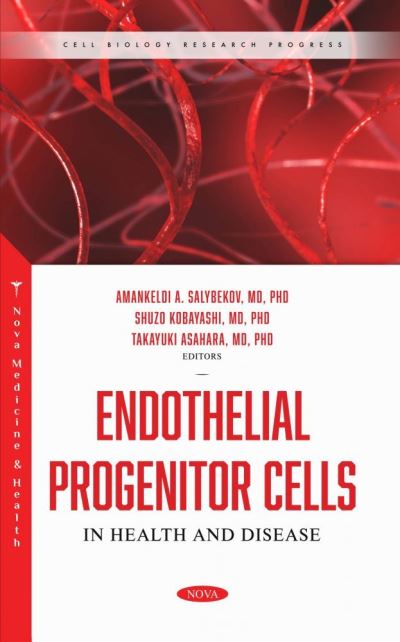
We are delighted to offer this textbook to the scientific community, entitled Endothelial Progenitor Cells in Health and Diseases, which covers a timely topic in the rapidly evolving discipline of vascular biology. Written primarily for a life science audience and clinicians, the fundamentals of EPCs biology and the latest characterization and definition in health and diseases are introduced, followed by explanations of the most cutting-edge cell therapy methods to cure ischemic diseases. In Section One, endothelial cell progenitor isolation methods and biological characterization were reported. The discovery of this novel endothelial progenitor cells (EPC) concept has overturned the previous dogma which suggested that vasculogenesis could only occur during embryogenesis. In fact, both vasculogenesis and angiogenesis may potentially have a synergistic role in postnatal revascularization. Also, this chapter summarized recent advances in EPC biology such as biological function, origin, definition, and classification. Each EPC culture and isolation method is clearly defined to prevent confusion in EPC biology. Section Two focuses on EPC biological function alteration in cardiovascular diseases (CVD). Several large clinical trials have reported that the number and biological function are strongly associated with major adverse cardiovascular events. The diagnostic and prognostic potential of EPC is crucial in terms of CVD. In Section Three, biological dysfunction mechanisms of EPC and their scarcity in diabetic patients' peripheral blood were clearly described. Preclinical studies have shown that EPC-based therapy is feasible, safe, and efficacious in multiple disease states. Subsequently, this has led to several clinical trials demonstrating the feasibility and safety profile of EPC therapy against cardiovascular ischemic diseases. In Section Four, regenerative medicine pioneers discussed EPCs translation to the clinic and cell transplantation challenges along with their solutions. Personalized stem cell-based therapy approaches employing several clinical biomarkers, disease-related genetic-trait evaluation methods, and advanced analyses with state-of-the-art computational methods such as machine learning-based prediction can increase cell therapies' efficacy and decrease treatment costs. The last chapter in the book describes a therapeutic application of EPC-derived extracellular vesicles to cure CVD.
| ISBN: | 9781685077945 |
| Publication date: | 8th July 2022 |
| Author: | Amankeldi A Salybekov, Shuzo Kobayashi, Takayuki Asahara |
| Publisher: | Nova Medicine and Health an imprint of Nova Science Publishers, Inc. |
| Format: | Hardback |
| Pagination: | 191 pages |
| Series: | Cell Biology Research Progress |
| Genres: |
Diseases and disorders |